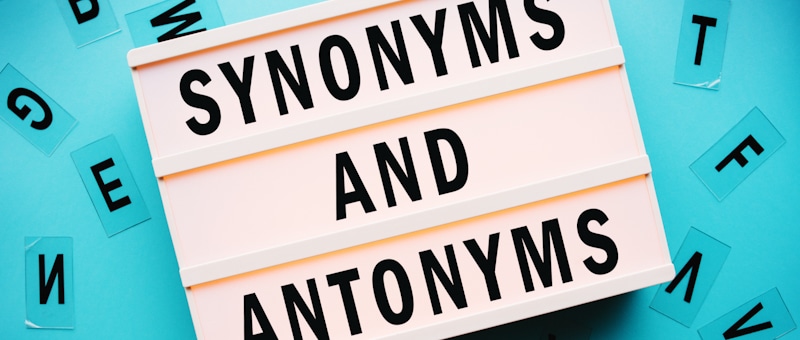Some words are used more often than we notice to care. One of those words is “Regardless”, because of what it means there are certain specifications to use it correctly. Here we will go over the meaning, origin and correct use of it in a sentence.
Typically, the word “regardless” is used at the beginning of the ending of a sentence. We use it to signify or explain that despite a certain circumstance or event, what happened occurred without being affected by the said circumstance.
If you were talking to a friend about what someone you know did, despite the advice you provided for example, using the word “regardless” would fit perfectly to describe what happened and it would not impact the meaning or order of the events expressed on this idea.

Meaning And Etymology Of The Word “Regardless”
The meaning of “regardless” is despite everything, or something that no matter what will not affect something else.
The word “regardless” originated from the word “indifferent”, which began to be used in the 1500’s. Later the word started to be used in place or as a synonym of “indifferent”. Initially it was used with “of consequences”, so every time you have an entire phrase, “regardless of consequences”. This use of it was circa 1872, nowadays, we don’t need to add the consequences part, it is inferred by the word “regardless” by itself whenever it is used.
If we go even further back, the root of “regardless” comes from the French word “regard”. Which meant “to watch”, that combining it with the preposition re- translates into “to guard”. That is why when we send an email, we add the word “regards” at the end. We are wishing those who receive our message to be well, safe, protected, guarded.
So, when we add “-less” at the end of “regard”, it becomes the opposite, without any regard or care. That is where “regardless” obtained the meaning and the use we have for it.
Synonyms Of The Word “Regardless”
There are so many equivalents of the word “regardless” out there, but why do keep using it. Well, the main reason is that it sounds fancy, and because its counterpart “regard” is customarily used in formal and informal communications we tend to prefer it.
Here is a list of words and phrases that share a similar meaning with “regardless”:
- Despite
- Nevertheless
- Anyhow
- Notwithstanding
- However
- Carelessly
- Heedless
- Haphazard
- Unmethodically
- Disregarding
- Indifferent
- Neglectful
Here are some sentence examples with these words:
- Despite the weather warning, they went ahead with the trip.
- She knew he was cheating and proceeded with the wedding indifferent to the fact.
- The words said were heedless, without care for repercussions at all.
- Sometimes people act carelessly, they go through life dropping bombs and burning bridges in their path, as if they are never going back that same way.
- He was told her was not welcome there and he was not to go, but he went anyhow.
- Finding a solution will improve their mood, however the expectations have lowered since the incident.
If you notice on many of these examples you can replace the synonym for “regardless” or “regardless of” and the sentence will not lose any meaning. So, if you mean to say something was done no matter what, or despite its consequences “regardless” and other synonyms are just what you should use.
Antonyms Of The Word “Regardless”
You can’t talk about synonyms without thinking about antonyms. Is like yin and yang, the existence of one defines and depends on the existence of the other to have meaning. That is why there are many antonyms to “regardless”, the most obvious one is “regards”.
Some other antonyms of “regardless” are:
- Thoughtful
- Sympathetic
- Caring
- Mindful
- Keen
- Concerned
- Heedful
- Involved
- Compassionate
- Attentive
- Considerate
- Careful
Here are some examples with these antonyms:
- Compassionate people are the best kind of people.
- She was always looking out for them and considerate of everyone’s feelings.
- Customer support is the backbone of businesses, if your first line people are not attentive your customers will go elsewhere with their business.
- To be mindful is a titanic task nowadays, there is always something going on and sometimes it is easier to be in autopilot.
- He is so thoughtful. His gifts are always exactly what you would love to be given.
- Regardless of time, parents are eternally concerned with the wellbeing of their children.
Which One To Use, “Despite” or “Regardless” in a sentence
Given that these two words are interchangeable in meaning and use, grammar enthusiasts are divided between which one to use when writing or speaking.
Those who prefer using “despite” they use it because it is a shorter way to say the same thing, it is only one word that covers the same meaning. If they used “regardless” it usually has to be accompanied by “of” turning it into a phrase.
The reason for the divided preference between one word and the other is the literal meaning, “despite” means “in spite of”, whereas the meaning of “regardless” is “without regard” because of the suffix “-less”. However, none of this changes the fact that both words can be interchangeable in meaning and use.
Another interesting fact is the connection of the events being referred to. When we use “regardless” it implies something unknown, that whether it happens or not, you or the person being spoken of is choosing to do something without knowledge of the future. When using “despite”, on the other hand, we are referring to something we already know, and that “in spite of” we or whomever we are talking about will do or not do something.
How Do We Use “Regardless” In A Sentence?
After going over the definition, synonyms and antonyms of the word “regardless”, is time to learn how to use the word in a sentence. You need to know that it is an adjective, so we will use it to describe something or someone, to assign a quality, to modify a noun.
Keep in mind as well that adjectives can be countable or uncountable. You can’t count how “regardless” someone is, so it makes it an uncountable noun.
Examples Of Sentences With The Word “Regardless”
- I was able to help, regardless of the uncomfortable situation we were in.
- Regardless of suspicion, we can never assume, let alone point at someone until an accusation is proven.
- Maternal instincts do not come at the same time for every woman, regardless of that when a woman’s baby is in need those instincts will arise immediately.
- It makes me feel safe to know that regardless of the time I can get emergency services in less than 5 minutes in my new city.
- Regardless of the words he said, all I wanted is to hear his perfectly deep voice.
- No one deserves to die, regardless of their actions.
- I take promises very seriously, regardless of what I have to do in order to maintain it, I will find a way.
- She was bound to find out regardless.
- Honesty is the root of every intimate relationship. Sometimes truth can be difficult but regardless of that we should strive to stay honest.
- Regardless of the threats and dangers faced in their jobs, police officers go out every day and do their job.
- The silence was absolute, regardless of how many years past, people came and left, only silence prevailed.
- What she had to say was so important that regardless of what happened it had to be said.
- The law should apply to all those who break it, regardless of their social status.
- Regardless of your psychological or emotional burdens, you should not allow that to dictate the success of your relationships.
- Every October she flies wherever her children might be, and pays them a visit, regardless of having passed away a long time ago.
- Most gurus lead very simple, down to earth lives, regardless of physical possessions.
- We hoped he would follow our steps and become a vegetarian but regardless of our efforts he eats meat every chance he gets.
- It is common to see PHD students that regardless of all the struggles decide to expand their studies further.
Conclusion
When speaking of a situation or event that happened or will happen and not affect the outcome, the choice of word will help deliver the message correctly. We have seen several examples on how to use “regardless” in a sentence that can do just that.
We have also seen many synonyms that can be used in the place of “regardless”, because in essence and meaning they can be interchangeable. Now, the next time you are writing a paper or revisiting an event from the past you know exactly which word to use that can be placed either at the beginning, middle or end of the sentence.
Also, when looking for an appropriate uncountable adjective, you have the knowledge of one, that can be used in many ways depending on the context. Since “regardless” is commonly used with the preposition “of” it can also be used with linking verbs. We use linking verbs to connect a word that gives information about the subject. But that is a topic for another day.
Shawn Manaher is the founder and CEO of The Content Authority. He’s one part content manager, one part writing ninja organizer, and two parts leader of top content creators. You don’t even want to know what he calls pancakes.



